Blinken Headed To Middle East To Talk Iran, Russia
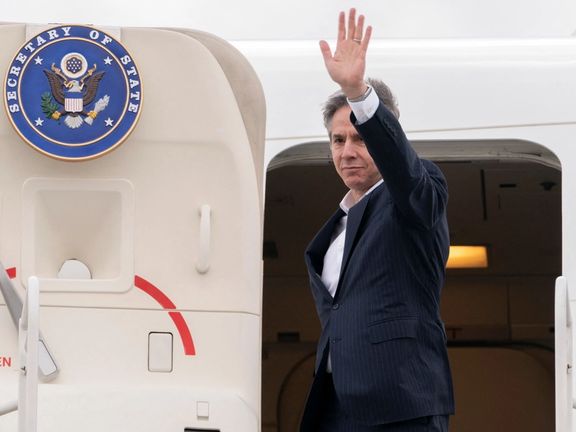
US Secretary of State Antony Blinken is headed to Middle East to attend an Israeli-Arab summit likely to be focused on Iran and Russia's invasion of Ukraine.

US Secretary of State Antony Blinken is headed to Middle East to attend an Israeli-Arab summit likely to be focused on Iran and Russia's invasion of Ukraine.
Blinken, who left Warsaw for Israel on Saturday, “Looking forward to connecting with old friends and deepening ties as we work to build on our wide-ranging partnerships”.
He is also scheduled to visit Morocco and Algeria on Tuesday and Wednesday.
Blinken will meet with Israeli Prime Minister Naftali Bennett on Sunday as well as Palestinian President Mahmoud Abbas in Ramallah in the central West Bank.
According to Foreign Minister Yair Lapid's office, Blinken and counterparts from Israel, United Arab Emirates, Bahrain, Morocco and Egypt will hold a "historic meeting" on Sunday and Monday.
On Friday, Jordan’s King Abdullah II hosted Abu Dhabi Crown Prince Sheikh Mohammed bin Zayed Al-Nahyan, Egyptian President Abdel Fattah el-Sissi, and Iraqi Prime Minister Mustafa al-Kadhemi in the Red Sea port city of Aqaba for a “consultative brotherly meeting dealt with recent international and regional developments”.
Leaders of Egypt, Israel and the United Arab Emirates also met on March 22 in the Egyptian resort town of Sharm el-Sheikh.
Except a mention of the Ukraine crisis and Iran, there is little information about what were discussed in all these meetings before Blinken arrival in the region but it could be part of efforts to present a united regional front on Iran issues.
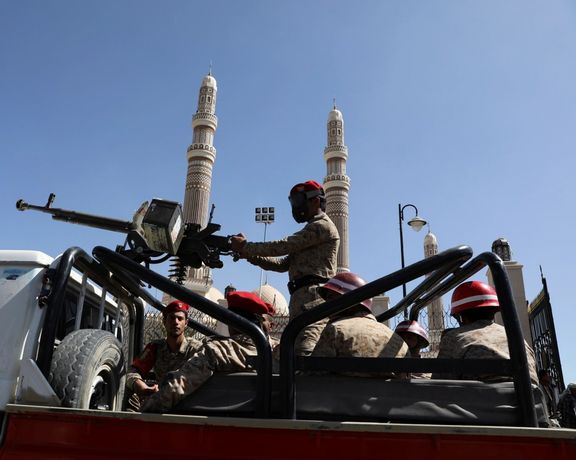
The Saudi-led coalition set a three-hour deadline for the Iran-backed Houthis to withdraw weapons from the airport of Sanaa and two ports on the Red Sea.
Saudi-owned Al-Arabiya TV reported on Saturday that retaining weapons in the Yemeni capital's airport and the ports of Hodeidah and Saleef would "end their status" as safe regions not to be targeted by coalition air strikes. The coalition’s statement also called on Houthis to “remove weapons from protected sites” but did not say exactly at what time the deadline would expire.
According to the official Saudi Press Agency on Saturday, the coalition has destroyed four explosive-laden boats in Hodeidah and Saleef ports in a targeted strike. The weaponized boats were still being built by the Houthis and their destruction thwarted “imminent attack on oil tankers”.
On Friday, the Arab Coalition announced the start of a new round of airstrikes on Houthi positions in retaliation for their attacks on oil facilities in Saudi Arabia, which drew widespread condemnations, including from Washington that blamed Iran for supplying weapons to the Houthis.
Republican Senator James Risch twitted on Friday that “As the Biden Admin telegraphs removing the IRGC terrorist designation, Iran-backed Houthis in Yemen attack our Gulf partners with impunity. The administration is dangerously naïve to continue pursuing a bad deal with Iran”.
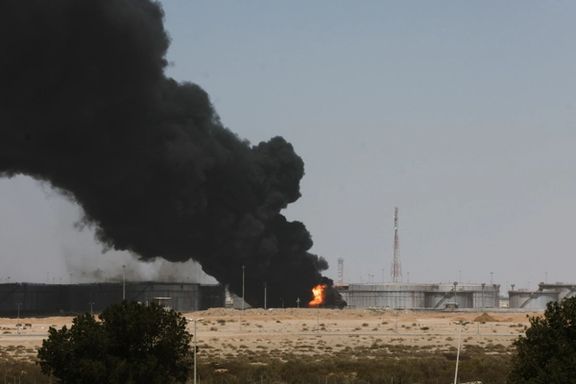
As Yemen’s Houthi rebels attacked Saudi oil facilities, Iran claimed it had increased its oil output potential to 3.8 million bpd amid a surge in energy prices.
The Iranian oil ministry's public relations on Friday said Iran's capacity for drilling and extracting oil has now surpassed the level before sanctions were imposed by the United States in 2018 and reached 3.8 million barrels per day.
Crude oil prices surged to over $120 per barrel after Friday's Houthi attack and again, following Saudi retaliatory strikes on Saturday. World energy prices have surges after Russia’s invasion of Ukraine and Saudi oil is seen as crucial to fill any void in case of more sanctions against Moscow.
Saudi Arabia has said that it will not be held responsible for any global shortage of oil resulting from Houthi's Friday attack on its Aramco facilities by Iran-aligned Houthi rebels of Yemen.
The Houthi attacks on Friday were carried out ahead of the 7th anniversary of a Saudi-led coalition's military intervention against the Iran-backed Houthis in Yemen. Two large oil reservoirs in Jedda caught fire in the attacks and were burning until midday Saturday.
Iranian officials have not commented directly on the Houthi attack but state-run media say Houthis have "defeated" Saudi Arabia. "The national army and Ansarallah have the upper hand now. They strike any target in Saudi Arabia with their missiles and drones despite being named the weakest Arab army in 2015 when the war started," the official news agency IRNA wrote Saturday.
On Friday Tehran Municipality beamed images of Houthis leaders Hussein Badreddin al-Houthi and its current leader Abdul-Malik Badruldin al-Houthi on the Azadi monument in Tehran. The 3-D video-mapping presumably marked the 7th anniversary of the war in Yemen which the Houthis have designated as the National Steadfastness Day.
The Saudi-led coalition on Saturday unleashed a barrage of overnight airstrikes on the Yemeni capital Sanaa and Hodeida, a strategic Red Sea city in retaliation for the Houthi attack on Aramco oil depot in Jiddah on Friday.
According to the state-run Saudi Press Agency, a spokesman for the Saudi-led coalition, Turki al-Malki, said on Saturday that the strikes aim to "protect global energy sources and ensure supply chains" and that the operation would continue until it achieves its goals. The operation was in its early stages and Iran-aligned Houthis should bear the consequences of their "hostile behavior", he said.
The coalition said it intercepted and destroyed two more bomb-laden drones on Saturday.
Riyadh on Saturday also requested a UN Security Council meeting to condemn the Houthi attacks. In a message to the council, the Saudi mission said the country reserves the right to take all measures to defend its territory.
Saudi Arabia accuses the Houthi militia of targeting its energy facilities and civilian areas with drones and ballistic missiles provided by Iran while the Houthis claim it is the Saudi-led coalition that carries out air strikes against Yemeni civilians in areas under its control.
Houthis have launched dozens of cross-border attacks on Saudi Arabia since September 2021.
Friday's attacks were strongly condemned by the United States, its European allies and others.
US National Security Advisor Jake Sullivan in a statement on Friday said the United States condemns the Houthi attacks and accused Iran of arms shipments to Houthis. “Today’s attacks…were clearly enabled by Iran in violation of UN Security Council resolutions prohibiting the import of weapons into Yemen.”
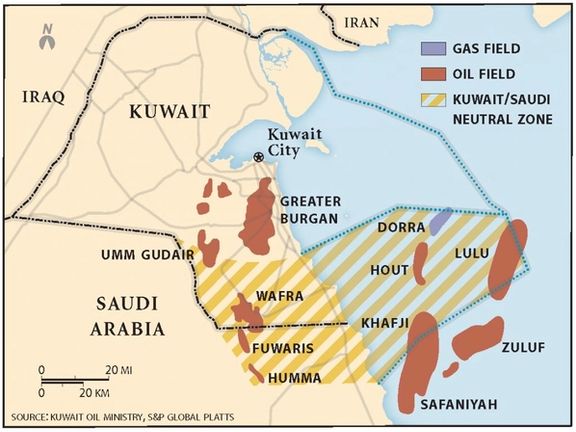
Iran says a deal between Saudi Arabia and Kuwait to develop the Arash/Durra joint offshore gas field is “illegal” because Tehran is not included in the project.
Foreign Ministry Spokesman Saeed Khatibzadeh said on Saturday that Iran has a share in the field and must be included in any action to operate and develop the field.
Khatibzadeh said, "The Arash/Al-Durra gas field is a joint field between Iran, Kuwait and Saudi Arabia. Parts of it are located in areas between Iran and Kuwait whose water boundaries have not been defined. The Islamic Republic of Iran also reserves the right to exploit the gas field".
He added, "The recent move by Kuwait and Saudi Arabia in the framework of a cooperation document is contrary to what has been previously negotiated and is illegal. It has no effect on the legal status of the field and is not approved by the Islamic Republic of Iran. In accordance with international regulations and procedures, any action in the operation and development of this field must be in coordination with all three countries”.
Kuwait Petroleum Corporation announced the signing of the contract between Saudi Arabia's energy minister and his Kuwaiti counterpart in a statement on Monday.
According to the contract, the joint gas field -- called Arash in Iran and Durra by the Arab countries -- is expected to produce one billion standard cubic feet per day of gas and 84,000 barrels per day of condensates.
The offshore field was discovered in 1967 and is estimated to have a total proven reserves of around 20 trillion cubic feet of gas.

The US State Department has criticized Iran over its plans to tighten Internet access and urged the government “to allow its citizens to exercise their right to freedom of expression and to freely access information.”
The department’s Bureau of Democracy, Human Rights and Labor, which says it “champions American values, including the rule of law and individual rights,” tweeted Thursday that Tehran’s “Iran’s proposed User Protection Bill aims to further limit Internet access, increasing censorship and restricting free speech online.”
In February 18 members of an ad hoc parliamentary committee in Iran said they had ratified the outlines of a bill entitled 'Legislation to Protect Cyberspace Users' to regulate internet and social media access, only for the parliament's Regulations and Bylaws Division to issue a statement that the committee had broken the law in ratifying a different version of the bill referred to it for examination and approval.
Iran has blocked websites and social media apps over the past two decades, but these are readily sidestepped with wide use of VPNs (virtual private networks) and other tools. Some social media users have alleged that problems with internet coverage in recent months are a trial run for a plan to curb internet access and social media. In February Speedtest global index ranked Iran 80of 138 countries worldwide for mobile internet connection, and 145 out of 180 for fixed broadband speed.
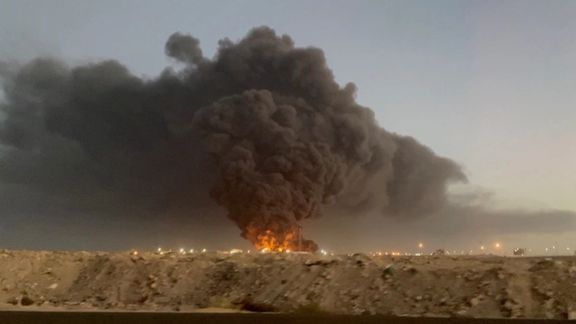
The United States, its Western allies and others have condemned drone and missile attacks by Yemen's Iran-backed Houthis on Saudi energy facilities on Friday.
US National Security Advisor Jake Sullivan issued a statement saying, “We condemn the Houthi attacks launched against Saudi Arabia’s civil infrastructure earlier today. Unprovoked Houthi attacks against Saudi Aramco’s oil storage facilities in Jeddah as well as attacks against civil facilities in Jizan, Najran, and Dhahran are acts of terrorism aimed to prolong the suffering of the Yemeni people.”
Sullivan went on to accuse Iran of arms shipments to Houthis. “Today’s attacks…were clearly enabled by Iran in violation of UN Security Council resolutions prohibiting the import of weapons into Yemen.”
UK Prime Minister Boris Johnson said in a tweet, “I fully condemn the latest Houthi attack against critical sites in Saudi Arabia, including in Jeddah. These strikes put civilian lives at risk and must stop.”
The Iran-aligned Houthis said they launched attacks on Saudi energy facilities on Friday and the Saudi-led coalition said oil giant Aramco's petroleum products distribution station in Jeddah was hit, causing a fire in two storage tanks but no casualties.
A huge plume of black smoke could be seen rising over the Red Sea city where the Saudi Arabian Grand Prix is taking place this weekend.
France and Germany echoed the US and UK condemnations. The German Foreign Office tweeted, “We strongly condemn today's attacks on essential civilian infrastructure in Saudi Arabia which violate international humanitarian law and further undermine regional stability.”
The swift and clear Western condemnations came as Iran’s nuclear talks with world powers apparently hinge on a demand by Tehran to remove its Revolutionary Guard (IRGC) from the US list of terrorist organizations. The Guards are known for providing military assistance to the Houthis. The United States, Saudi Arabia and UN arms experts have said that drone and missile technology used by Houthis are supplied by Iran.
Egypt, the Gulf Cooperation Council and Secretary-General of the Arab League also condemned the strikes at Saudi civilian targets, saying Houthi attacks threaten security in the region and global energy supplies.
Saudi Arabia’s Energy Ministry reiterated that the Kingdom will not be responsible for any shortage of oil supplies to global markets. This is particularly noteworthy given the Russian invasion of Ukraine and a possible global shortages of oil and gas supplies.
The Iran-aligned Houthis who have been battling a coalition led by Saudi Arabia for seven years launched missiles on Aramco's facilities in Jeddah and drones at Ras Tanura and Rabigh refineries, the group's military spokesman said. He said they also targeted "vital facilities" in the capital Riyadh.
Saudi state media had earlier reported that a string of drone and rocket attacks by the Houthis was foiled by the coalition.
Saudi air defenses also intercepted and destroyed a ballistic rocket launched towards the port city of Jazan, which caused a "limited" fire to break out at an electricity distribution plant, state media reported.